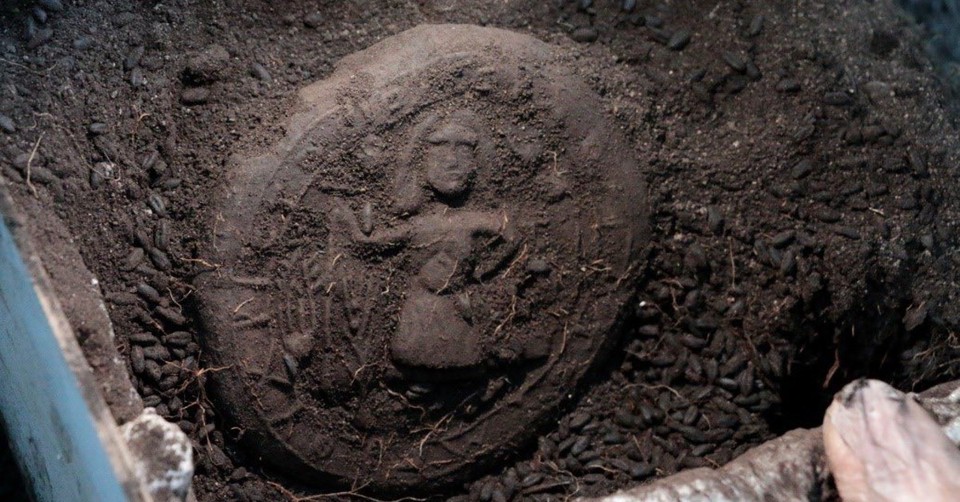1,300-Year-Old Communion Bread Unearthed, Bearing the Image of Jesus

Archaeologists in Turkey have unearthed five carbonized loaves of bread that likely were used for communion and feature intricate early Christian imagery, including a depiction of Jesus.
The bread dates to the seventh or eighth centuries A.D. and includes a depiction of Jesus not as the classic “Jesus the Savior” but as the “Sower” or “Jesus the Farmer,” reflecting the symbolic importance of fertility and labor in the Christian worldview of that era, according to a news release. That specific loaf includes a Greek inscription reading, “With our thanks to Blessed Jesus.” Other loaves discovered alongside it bear Maltese Cross impressions.
Archaeologists say the bread offers a rare glimpse into both the artistry and spiritual life of the Middle Ages church. A fire likely helped preserve them.
“The fact that the bread has become carbonized and reached our present day shows the extraordinary conditions of conservation,” the news release said.
The discovery was made in Turkey’s Karaman province at Topraktepe, the site of the ancient city of Eirenopolis, where archaeologists continue to uncover traces of early Christian life. It is located in south-central Turkey.
According to the Catholic Encyclopedia, Eirenopolis -- or Irenopolis -- was a diocese in the Roman province of Isauria with a strong Christian history. Five bishops from the city are known: John (325), Menodorus (451), Paul (458), George (692) and Euschemon (878).
RELATED: Archaeologists Find Rare A.D. 70 Coin in Jerusalem from Time of the Apostles
The city was mentioned by the ancient writer Hierocles in the sixth century and by another writer, George of Cyprus, in the seventh century, according to the Catholic Encyclopedia. It appears in sixth-century church records compiled by Anastasius, Patriarch of Antioch, and again in the tenth-century Nova Tactica, when it was under the Patriarchate of Constantinople.
“These 1,300-year-old breads shed new light on a fascinating chapter of early Byzantine life,” an excavation team member said, according to The Jerusalem Post. “They prove that piety extended beyond prayers and ceremonies, materializing in objects that carried spiritual significance to the most basic human need: bread.”
Archaeologists will study the bread’s chemical and botanical makeup to identify the types of grains and rising agents used, The Post said.
Image credit: Karaman Valiliği on Facebook
Michael Foust has covered the intersection of faith and news for 20 years. His stories have appeared in Baptist Press, Christianity Today, The Christian Post, the Leaf-Chronicle, the Toronto Star and the Knoxville News-Sentinel.
Listen to Michael's Podcast! He is the host of Crosswalk Talk, a podcast where he talks with Christian movie stars, musicians, directors, and more. Hear how famous Christian figures keep their faith a priority in Hollywood and discover the best Christian movies, books, television, and other entertainment. You can find Crosswalk Talk on LifeAudio.com, or subscribe on Apple or Spotify so you never miss an interview that will be sure to encourage your faith.
Originally published October 20, 2025.







